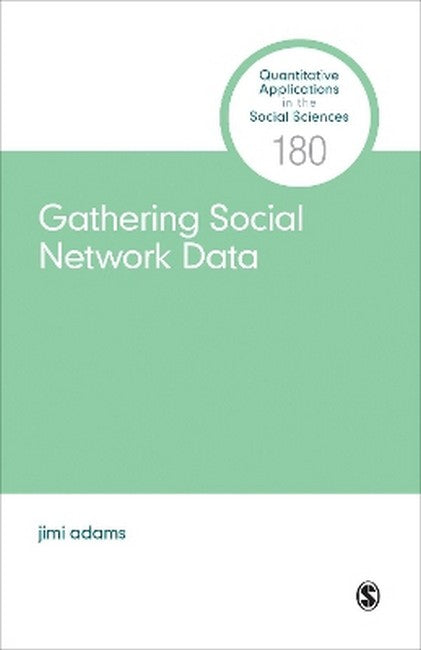jimi adams is a Professor of Sociology at the University of South Carolina. He studies how networks constrain or promote the diffusion of information and/or diseases through populations. Much of this work has focused on HIV/AIDS and Covid-19 among populations in the US and Sub-Saharan Africa. Recently, his work has focused more on the integrative patterns and processes in problem-focused areas of science that draw from many academic disciplines (e.g., HIV/AIDS, demography, the environment). In addition, his work entails a focus on using social network theory to improve strategies used in the design and implementation of primary data collection projects. He received his PhD in sociology from Ohio State University.
Request Academic Copy
Please copy the ISBN for submitting review copy form
Description
Series Editor's Introduction Preface About the Author Acknowledgements 1. Why Relationships? Description, Network Theories, & Theories of Networks Types of Ties Outline of the Rest of the Book 2. Sampling & Measuring Network Ties Network Measurement Sampling Designs The "Boundary Specification Problem" 3. Modes of Network Data Collection Active Research Participants Passive Data Collection "Complex" Network Data 4. Ethical Considerations Voluntary Participation & Informed Consent Balancing Risks and Benefits Using & Presenting Network Data 5. Data Quality: Assessment, Implications, & Improvements Missing Data Data Reliability and Validity 6. The Way Forward Appendix I: Terms & Resources List of Abbreviations Glossary Recommended Additional Resources Appendix II: Network Data Formats Appendix III: Existing Data Sample Instruments Data Repositories References

